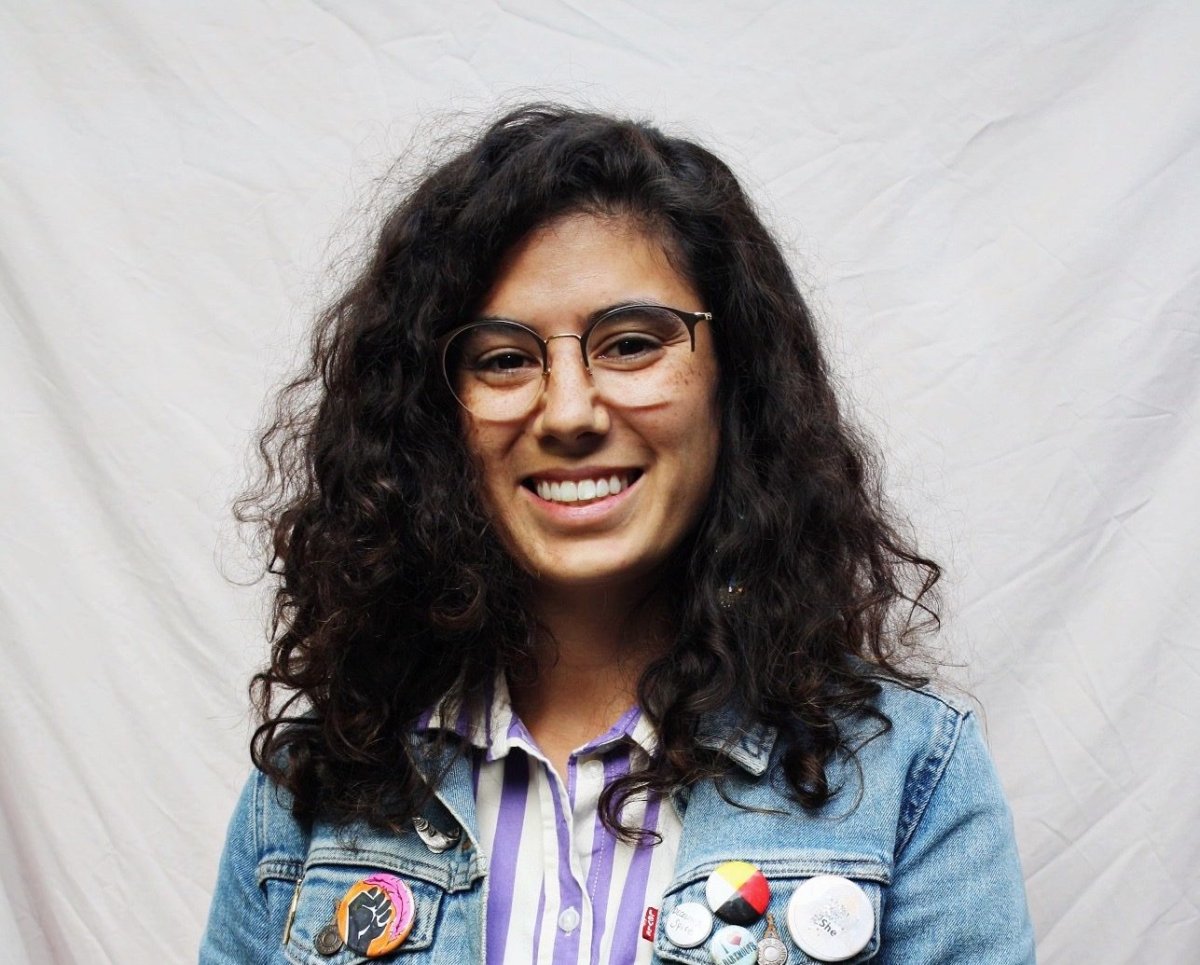A Halifax-based spoken word artist, and the municipality’s former Poet Laureate, is speaking out after she says the province attempted to purchase copies of her book for its schools — under a condition that she simply couldn’t accept.

Rebecca Thomas’ first poetry collection is entitled I Place You Into the Fire, and highlights her experiences as a second-generation Indian residential school survivor.
The Mi’kmaw poet says in April, her publisher told her Nova Scotia’s Department of Education indicated it wanted to order a run of books, but requested six poems be omitted.
Thomas points out one of the poems, An Indian Called Sir, was about growing up with a father who had survived Canada’s residential school system.
“I didn’t want to do that. I didn’t want to compromise the integrity, especially some of these poems are so very personal to me about my experience with my father,” she said.
She says her publisher tried to find out the province’s reasoning for the request, but did not hear back.
This week’s news about the discovery of 215 children’s bodies in unmarked burial sites at the former Kamloops Indian Residential School prompted her to speak out.
- Canadian man dies during Texas Ironman event. His widow wants answers as to why
- ‘Shock and disbelief’ after Manitoba school trustee’s Indigenous comments
- Several baby products have been recalled by Health Canada. Here’s the list
- ‘Sciatica was gone’: hospital performs robot-assisted spinal surgery in Canadian first
“I decided that I was going to let it go. And then when this news story broke, I got really sad, very, very sad. And then I got very upset and very angry and I thought, ‘How dare they?'” she said.
“I got so mad. I said, ‘You just can’t do this. You have to be accountable and explain your decisions.”
In a series of tweets, Thomas wrote “I’m not going to participate in the erasure of my own people’s history in the Nova Scotia curriculum” and encouraged educators who wanted to teach her book in their classes to reach out so she could speak to their students.
Thomas admits one of the poems — about dating — is tongue-in-cheek and may have been considered “risqué.” However, she feels removing the content of those poems would have been a disservice to the students.
“Really disappointed that specifically my poems about being mixed race, my poem around people dressing up as native people and mascot use, and my poem about my dad. I was really shocked that those are on the list,” she said.
“That was really upsetting to say, ‘We want to teach about residential schools, but we don’t want to hear how hard it was for people who kind of lived through that with their parents.'”
Thomas’ publisher, Nimbus Publishing, confirmed it reached out to the province after the request to omit the poems, but has not heard back as of Tuesday.
“It’s not a common request, but it is not unheard of,” Kate Watson, the Atlantic publicist for the publisher, told Global News in an email.
“Nimbus would always follow the wishes of the author in cases like this.”
Watson goes on to say Thomas’ book is powerful, and that Nimbus “believes that it has a lot of important things to say to young people, and all people.”
Thomas says she is open to having a conversation with the department — to hear their reasoning on why it wanted those specific poems removed and on their process for making these types of decisions.
“They may never buy my books, and that is fine. But it might force change in a good way. I think that that is the whole point of the position that I hold in the Twitter universe or the social media power sphere, is that this might force change in a good way,” she said.
“It’s going to be uncomfortable for everybody involved. But hopefully it will happen.”
Department of Education responds
Global News asked the province for comment, and on Tuesday afternoon, the Department of Education and Early Childhood Development sent a statement.
The department says it was looking to bring Mi’kmaq voices to language arts and social studies classes in its junior high and secondary schools, which would involve students aged 12 to 15.
“As part of this process, materials are reviewed for age appropriate content and language, including the use of profanity. While many poems in the collection would be excellent for students of this age group, several included extreme profanity that would not be appropriate for the classroom,” the statement reads.
“While we would never ask an artist to alter their words, the department often works with publishers to create compilation pieces appropriate to support student learning.”

The statement goes on to say the department sent an initial request in April to see if the publisher and Thomas would be interested in creating a school edition of the book.
“At that time, the publisher indicated that this was agreeable. We have not yet spoken with the author about her works,” the department wrote, adding that a focus on Thomas and her work was recently included in a student resource developed for Grade 7 social studies classes.
In response, Thomas says she still has not personally heard from the department, and is curious to know what the definition of “extreme profanity” is.
According to Thomas, the “F-word” appears nine times in the 124-page book, two of which are in the title of a poem and in the table of contents.
Two of the poems asked to be removed had no profanity, she adds,




Comments